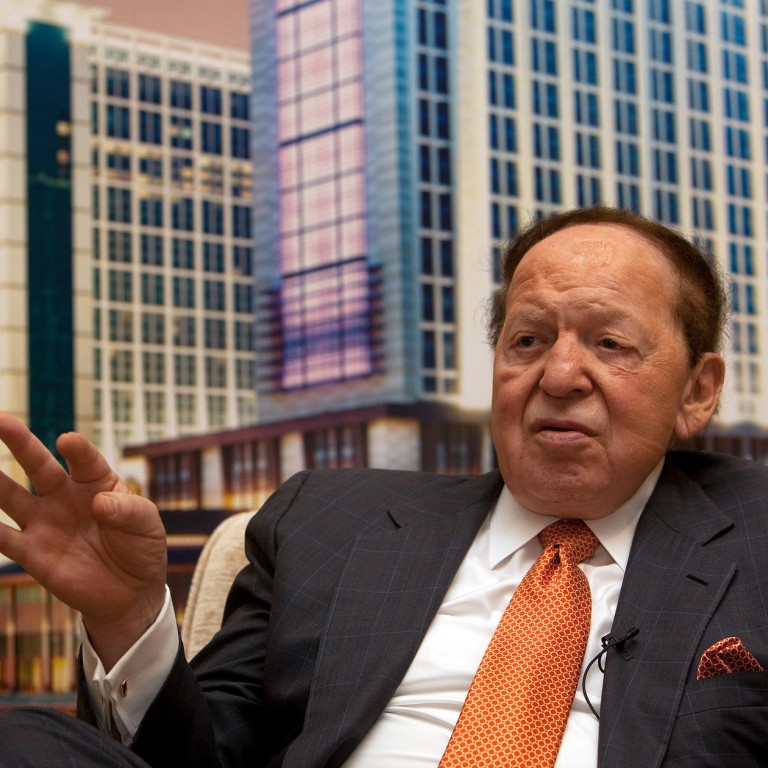
US casino operators split over internet gambling
Some players raise concerns over the possibility of money laundering, while others argue online gambling will eliminate a black market
Many experts believe online wagering is the future of gambling, but the casino industry is increasingly divided on the issue.

The coalition is emphasising the possibility that criminals and terrorists may use online gambling to launder money.
The group has support from casino mogul Sheldon Adelson, the chief executive of Las Vegas Sands, who is the 11th-richest American, according to magazine.
Adelson has said he is willing to spend "whatever it takes" to stop the spread of internet wagering.
Meanwhile, the casino lobby has made the legalisation and regulation of online gambling its signature issue for the year. Major members including Caesars Entertainment and MGM Resorts International are taking steps to get into the market.
Proponents formed their own group, the Coalition for Consumer and Online Protection, which is expected to launch its own six-figure advertising campaign targeting decision-makers in Washington.
"The coalition will operate exclusively at the federal level - encouraging Congress to embrace regulation as the best means to protect minors, detect money launderers and eliminate a dangerous black market," American Gaming Association president Geoff Freeman said in an e-mail to his board last week.
The new anti-online-gambling advertisement features stock scary-voice narration and starts with a black-and-white shot of two men shaking hands in silhouette.
"Right now, disreputable gaming interests are lobbying hard to spread internet gambling across the country," the advertisement warns.
Established casino companies have regarded the rise of internet gambling warily, wondering whether it will cut into profits from brick-and-mortar casinos or revive the spectre of corruption that the industry worked so hard to shed in the 1980s and 1990s.
Morgan Stanley predicted that by 2020, online gambling in the United States will produce the same amount of revenue as Las Vegas and Atlantic City combined: US$9.3 billion.
At least three congressional bills related to online gambling were introduced last year.
Two lawmakers introduced bills over the summer that would legalise some form of internet gambling nationwide.
In the autumn, Jim McDermott introduced a bill that would tax federally sanctioned online wagering.
Gamblers wanting to make wagers from the privacy of their homes have had few options in recent years. The federal government cracked down definitively on internet gambling in 2011.
But the same year, the Justice Department issued a ruling making online gambling legal so long as it was permitted on the state level.
Congress flirted with an online gambling bill in 2012, but industry infighting and partisan disagreement ultimately doomed it. When that legislation failed, states began moving ahead on their own.
Nevada, New Jersey and Delaware have legalised some kind of online gambling, and at least 10 other states are considering following suit, according to a survey conducted by Gambling Compliance, a group that tracks gambling-related legislation worldwide.
